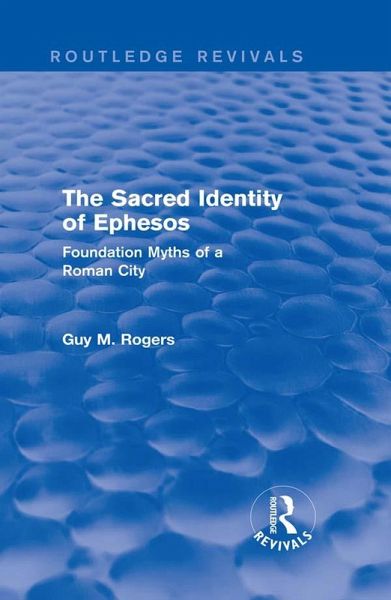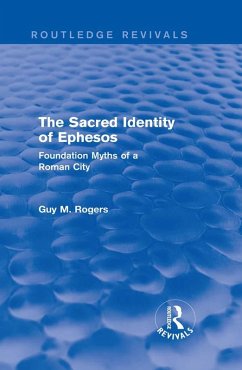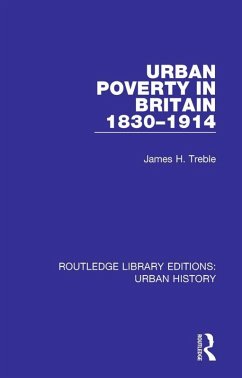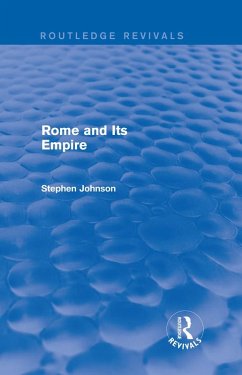
The Sacred Identity of Ephesos (Routledge Revivals) (eBook, PDF)
Foundation Myths of a Roman City

PAYBACK Punkte
26 °P sammeln!
The Sacred Identity of Ephesos offers a full-length interpretation of one of the largest known bequests in the Classical world, made to the city of Ephesos in AD 104 by a wealthy Roman equestrian, and challenges some of the basic assumptions made about the significance of the Greek cultural renaissance known as the 'Second Sophistic'.Professor Rogers shows how the civic rituals created by the foundation symbolised a contemporary social hierarchy, and how the ruling class used foundation myths - the birth of the goddess Artemis in a grove above the city - as a tangible source of power, to be wi...
The Sacred Identity of Ephesos offers a full-length interpretation of one of the largest known bequests in the Classical world, made to the city of Ephesos in AD 104 by a wealthy Roman equestrian, and challenges some of the basic assumptions made about the significance of the Greek cultural renaissance known as the 'Second Sophistic'.
Professor Rogers shows how the civic rituals created by the foundation symbolised a contemporary social hierarchy, and how the ruling class used foundation myths - the birth of the goddess Artemis in a grove above the city - as a tangible source of power, to be wielded over new citizens and new gods. Utilising an innovative methodology for analysing large inscriptions, Professor Rogers argues that the Ephesians used their past to define their present during the Roman Empire, shedding new light on how second-century Greeks maintained their identities in relation to Romans, Christians, and Jews.
Professor Rogers shows how the civic rituals created by the foundation symbolised a contemporary social hierarchy, and how the ruling class used foundation myths - the birth of the goddess Artemis in a grove above the city - as a tangible source of power, to be wielded over new citizens and new gods. Utilising an innovative methodology for analysing large inscriptions, Professor Rogers argues that the Ephesians used their past to define their present during the Roman Empire, shedding new light on how second-century Greeks maintained their identities in relation to Romans, Christians, and Jews.
Dieser Download kann aus rechtlichen Gründen nur mit Rechnungsadresse in A, B, BG, CY, CZ, D, DK, EW, E, FIN, F, GR, HR, H, IRL, I, LT, L, LR, M, NL, PL, P, R, S, SLO, SK ausgeliefert werden.













